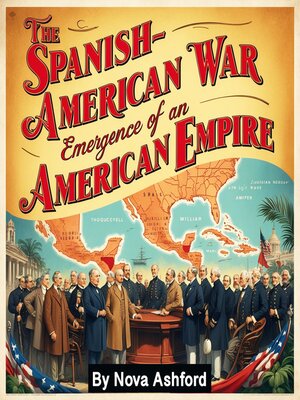
Sign up to save your library
With an OverDrive account, you can save your favorite libraries for at-a-glance information about availability. Find out more about OverDrive accounts.
Find this title in Libby, the library reading app by OverDrive.



Search for a digital library with this title
Title found at these libraries:
| Library Name | Distance |
|---|---|
| Loading... |
This audiobook is narrated by a digital voice.
The Spanish-American War, which began in 1898, marked a significant turning point in American history. It was a conflict driven by a combination of political, economic, and social factors that had been brewing for decades. At the heart of the war was the decline of the Spanish Empire and the rise of the United States as an emerging global power. By the late 19th century, Spain's once vast empire had deteriorated, and its remaining territories in the Caribbean and Pacific were under increasing pressure from both internal unrest and foreign powers.
In Cuba, the last significant Spanish colony in the Americas, the desire for independence had grown over several decades. Cuban rebels had fought for years against Spanish colonial rule, but by the 1890s, their struggle intensified. The Cuban War of Independence, led by figures like José Martí, gained momentum as Spain's ability to maintain control of the island weakened. The United States, with its growing interests in the Caribbean, began to take a more active role, supporting Cuban independence efforts in the hope of gaining political and economic benefits.
U.S. economic interests in the region were also a key factor in the lead-up to war. American businesses, particularly those involved in sugar, tobacco, and mining industries, had significant investments in Cuba. The U.S. government, under President Grover Cleveland, had already been involved in efforts to mediate the conflict and protect American citizens and property. However, by the time William McKinley took office in 1897, public opinion in the United States had shifted toward more direct intervention, partly driven by a growing sense of nationalism and the belief that it was America's duty to help liberate oppressed peoples.







